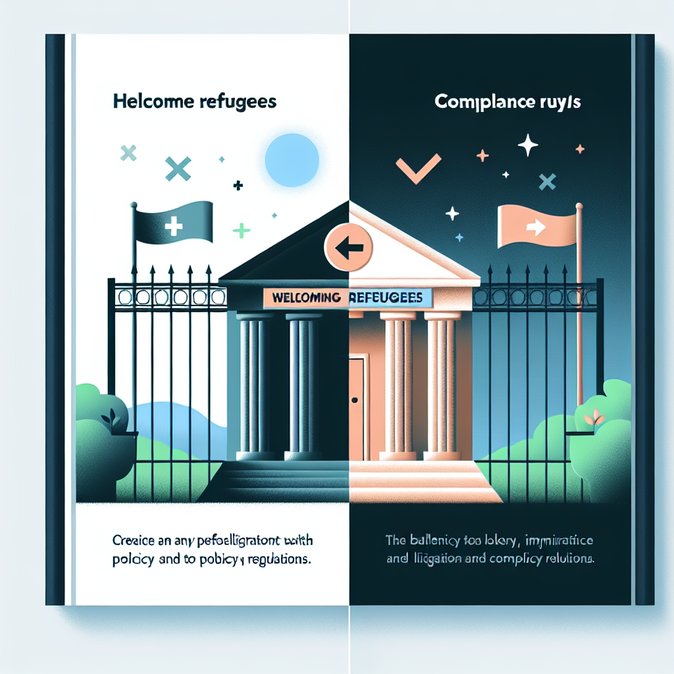
Canada’s reputation as a safe haven for refugees is “at risk,” former immigration minister Lloyd Axworthy told reporters in Ottawa on November 14. Axworthy’s criticism comes as Parliament debates Bill C-12, the Strengthening Canada’s Immigration System and Borders Act, which would let officials cancel asylum applications that have been in process for more than a year and give the minister broad powers to suspend or revoke immigration documents “in the public interest.”
Axworthy, who served as immigration minister under two Liberal prime ministers, argued that the bill prioritises enforcement optics over Canada’s human-rights commitments. “We’re basically regressing into a bubble,” he said, warning that charging refugees co-pays for dental and prescription benefits and relying on the Safe Third Country Agreement with the United States undermines core principles of the UN Refugee Convention. He urged the government to scrap the agreement, noting recent U.S. policy shifts that sharply reduced refugee admissions.
![Former Immigration Minister Warns Bill C-12 Could Tarnish Canada’s Refugee Brand]()
Business and mobility specialists say the draft law would introduce new compliance risks for employers that move talent across the border. “Permanent residence documents could be suspended with little notice,” one immigration counsel told Global Mobility News, advising HR teams to audit pending files and prepare contingency travel plans for high-value foreign staff. NGOs fear the bill will increase litigation and backlogs, countering Ottawa’s stated goal of a more efficient system.
Axworthy’s intervention adds pressure on Prime Minister Mark Carney, who has framed Bill C-12 as a response to growing public concern over border security and immigration fraud. With a minority government, Carney must secure support from either Conservatives or New Democrats to pass the legislation. Observers expect heated committee hearings in the weeks ahead, with stakeholder groups—from refugee advocates to corporate mobility managers—seeking amendments that balance security with Canada’s economic need for newcomers.
For employers, the practical takeaway is vigilance: review expatriate and assignee caseloads, identify anyone whose asylum, work-permit or permanent-residence status could fall under the bill’s discretionary powers, and brief travelling executives on possible document checks at ports of entry if C-12 becomes law.
Axworthy, who served as immigration minister under two Liberal prime ministers, argued that the bill prioritises enforcement optics over Canada’s human-rights commitments. “We’re basically regressing into a bubble,” he said, warning that charging refugees co-pays for dental and prescription benefits and relying on the Safe Third Country Agreement with the United States undermines core principles of the UN Refugee Convention. He urged the government to scrap the agreement, noting recent U.S. policy shifts that sharply reduced refugee admissions.

Business and mobility specialists say the draft law would introduce new compliance risks for employers that move talent across the border. “Permanent residence documents could be suspended with little notice,” one immigration counsel told Global Mobility News, advising HR teams to audit pending files and prepare contingency travel plans for high-value foreign staff. NGOs fear the bill will increase litigation and backlogs, countering Ottawa’s stated goal of a more efficient system.
Axworthy’s intervention adds pressure on Prime Minister Mark Carney, who has framed Bill C-12 as a response to growing public concern over border security and immigration fraud. With a minority government, Carney must secure support from either Conservatives or New Democrats to pass the legislation. Observers expect heated committee hearings in the weeks ahead, with stakeholder groups—from refugee advocates to corporate mobility managers—seeking amendments that balance security with Canada’s economic need for newcomers.
For employers, the practical takeaway is vigilance: review expatriate and assignee caseloads, identify anyone whose asylum, work-permit or permanent-residence status could fall under the bill’s discretionary powers, and brief travelling executives on possible document checks at ports of entry if C-12 becomes law.










